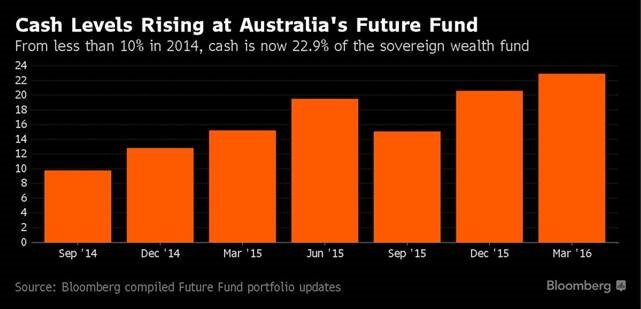
Perhaps you’ve never thought of your financial assets as worthy of bringing about social change or enough to change the world. However, a group of people, coming together to direct their funds to support ethical and socially responsible issues, can be an incredibly powerful catalyst for change.
As anthropologist and author Margaret Mead (1901 – 1978) said: “Never doubt that a small group of thoughtful, committed citizens can change the world; indeed, it’s the only thing that ever has.”
This is the essence of Socially Responsible Investment (SRI) and it has changed the way we think about our savings. It has shown how we can do social good as well as receive a financial return.
Understanding Social Impact and Financial Gain
There are two outcomes that make up SRI: social impact along with financial gain. Specifically, it is investing with “a conscience,” one that looks to do no harm while promoting socially responsible behaviour.
Most activism is centred around raising awareness about issues as disparate as climate change, sustainability, social justice, human rights and fair governance. However SRI, by definition, goes one step further: it directs investment towards good corporate citizens and away from those perceived to support unfair or unethical practices.
While a new term, SRI is a concept that has been around for a long time. Early examples include a directive from the Quaker Church in the 1700s that its members shouldn’t invest in companies that support the slave trade. Another more recent example is the movement of Australia’s largest Superannuation Funds divesting in companies such as Transfield – (the company that operates Australia’s Nauru and Manus Island refugee detention centres) for their controversy following numerous allegations of sexual, physical and human rights abuses.
A third example, globally more relevant to our times, is the issue of climate change. Described as “the moral challenge of our time” by former Prime Minister Kevin Rudd, the perils of a warming climate have been confirmed by a majority of world scientists and an ongoing discussion from influential world leaders.
The message for many people seeking to invest their money is they want to do so in companies that reduce their exposure to fossil fuels. This is an SRI strategy that has led to the popularity of fund managers who specialise in ethical investment. These investors seek opportunities in sustainable fund choices such as renewable energy.
SRI Pressure Helps Make the Change
It’s clear that SRI is having a major effect on the way companies do business. Two examples are the push towards sourcing raw materials from ethical suppliers and ending business relationships with those who employ child labour. For companies take great notice of their client’s preferences. More than ever before, they are making strides in socially responsible and sustainable outcomes. An example is in the chocolate industry. As recently covered in our March 23 post: Food for thought – from bean to bunny chocolate manufactures, many companies now practice fair trade and will only source their raw materials from cocoa farmers who pay their workers a fair wage.
On April 22nd marking the 46th anniversary of Earth Day, 175 counties came together to sign the Paris climate agreement at the UN, a record for a one day signing of an international accord. The Paris agreement signals a new era in the international communities approach to managing risks and impacts on climate change. Adopting a bottom-up approach gives counties the responsibility to develop local solutions, showing fresh political momentum taking action on climate change. This has created renewed demand among investors to measure the carbon footprint of their portfolios motivating them to take more concrete action towards social responsible investing.
The appearance of transparency, corporate governance, and ethically-centred funds has also reinforced the popularity and power of socially responsible investing.
Now people have the choice to make a difference with their investments. By using their combined financial influence, anyone can — in the words of Mahatma Gandhi — “…be the change you wish to see in the world”.
SRI is changing the face and character of investing. This approach is slowly (but surely) ramping up the pressure on the corporate world to change their unethical practices and embrace those that are sustainable and socially responsible. Investment managers at VFS see the power of ethical investment and are opening up the possibilities to our retail investors to direct their funds to socially responsible companies.
Interested in finding out more about SRI, its benefits for you, your community and our planet? Contact us for more information
Disclaimer:
This Communication has been prepared by Vertical Capital Markets Pty Ltd (ABN 11 147 186 114 AFS Licence No. 418418) trading as VFS Group (VFS Group).
This Communication is for general information purposes only. It does not take into account your investment objectives, financial situation or particular needs. Before making an investment decision on the basis of the information contained in this report, you should consider whether the information is appropriate in light of your particular investment objectives, financial situation or particular needs. You may wish to consult an appropriately qualified professional to advise you. Derivatives can be highly leveraged, carry a high level of risk and are not suitable for all investors. Investors should only invest in such products if they have experience in derivatives and understand the associated risks.
VFS Group and/or entities and persons connected with it may have an interest in the securities the subject of the recommendations set out in this report. In addition, VFS Group and/or its agents will receive brokerage on any transaction involving the relevant securities or derivatives.
If you receive this Communication in error, please immediately delete it and all copies of it from your system, destroy any hard copies of it and notify the sender. If you are not the intended recipient, you must not disclose the information contained in this Communication in any way.

